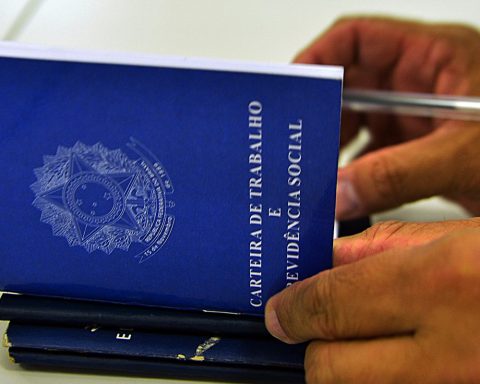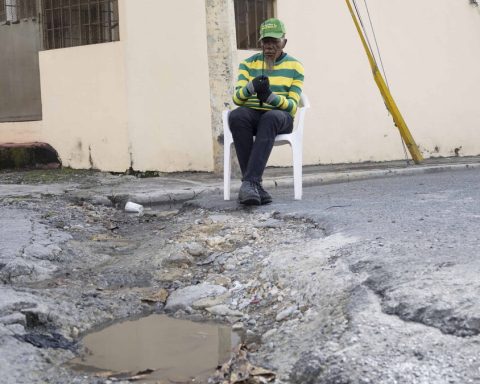Large taxpayers in the commercial sector in Nicaragua received notifications prohibiting them from labeling their prices in dollars, under threat of a fine if they persisted in a custom that has been in force in the country since the early 1990s, they confirmed to CONFIDENTIAL managers and executives of several of those businesses who requested anonymity to guarantee their safety, and that of the companies for which they work.
“They would need a special law to prohibit prices from being established in dollars,” said economist Enrique Sáenz, while an academic expert in economics who, like the managers, also requested anonymity, complemented that “What is prohibited is demanding payment in dollars, or any other currency that is not the córdoba.”
The administrators and executives consulted explained that at the end of November 2022, the Ministry of Development, Industry and Commerce (Mific), issued an order indicating that they should publish the prices of the products they have for sale in córdobas, I’m sorry of being subject to a fine.
That is exactly what happened with some administrators who decided to ignore the warning: they were fined, so they had to change the prices and set them only in córdobas, especially since after fining them, Mific inspectors have come to verify compliance with the given order.
The fact did not go unnoticed among consumers, who were quick to express their surprise on their respective social media accounts, including Facebook, Instagram, and TikTok.
Ephemeral benefit with artificial measures
Although the measure could generate an improvement for a buyer who had to spend more córdobas every day to pay for a product whose price was fixed in dollars, in the end, -says the academic economist- it would only be a short-term effect that would be would correct when there was an adjustment according to supply and demand.
“Right now it is not feasible to have a valid conclusive analysis. In theory, slip reduction It would favor the consumer, but the structure of the Nicaraguan markets are segmented, cartelized and agiotistas, because there are no State intervention measures or mechanisms to adequately correct these failures,” he stated.
“They are looking for how to impose the córdoba in the minds of the people as a currency as respectable as the dollar. In the end, they are monetary and statistical juggling that, instead of benefiting, rather punish the vast majority of the population, including businessmen,” said Sáenz.
The aforementioned academic agrees that “if the provision comes from the Government, it is to give strength to the córdoba and try to prevent a greater exchange rate gap from occurring, but in the end this, as a measure to reduce the slippage, will be adjusted by the market ”.
Reducing currency slippage did not stop inflation
Sáenz recalled that there have already been two modifications in the exchange slippage (November 2019 Y December 2020) and that this, “in addition to punishing the people, did not prevent Nicaragua from registering the highest inflation in Central America in 2022 (11.6%), nor did it prevent the cost of the basic basket will rise at 17%, and the cost of food at 22%.”
In the same way, he listed that it did not generate improvements in the income of the population either, since “real wages deteriorated month by month throughout 2022″ and that, on the contrary, it destroyed jobs, mentioning that “only in December 2022, the Nicaraguan Social Security Institute (INSS) lost ten thousand members.”
“The president of the Central Bank will continue to ‘flash’ with his statistics and monetary maneuvers, but people don’t eat statistics. This is confirmed by the recent report published by FAO, IFAD, WFP and Unicef: in Nicaragua, one in five inhabitants suffers from hunger. That is the highest rate in Central America, which has been rising in recent years,” added Sáenz, also a former opposition deputy.
What do the laws say about prices in dollars in Nicaragua?
Article 9, paragraph 11 of the Law for the Protection of the Rights of Consumers and Usersof July 2013, says that it is the obligation of the suppliers… “to apply the official exchange rate of the day, established by the Central Bank of Nicaragua, in the collection for the sale of goods or services when prior voluntary agreement of the parties, its amount is paid by the consumer or user in foreign currency”.
Additionally, article 10, paragraph 5, prohibits “charging or invoicing prices or rates in metals, currencies or foreign currencies or any monetary unit or means of payment that is not the córdoba, in accordance with Article 36 of Law No. 732, Organic Law of the Central Bank of Nicaragua, published in La Gaceta, Official Gazette No. 148 of August 6, 2010”.
The aforementioned article 36 of the Organic Law of the BCNno one can demand the payment of any debt (which includes taxes, fees, rates, fees, wages, salaries, contracts and obligations of any kind), in another currency that is not the córdoba, which does not prevent such obligations from being They can be fixed in any other currency, hence it is not possible to prohibit advertising or labeling prices in dollars.
“Any qualifying or restrictive clause that imposes payments in metals, currencies or foreign currencies, or any monetary unit or means of payment that is not the córdoba, will be null”, complements the article, the use of the verb “impose” being key, in Contrary to the practice of some commercial companies that indicate their prices in dollars, offering the consumer the option of paying in the currency of his choice.


















